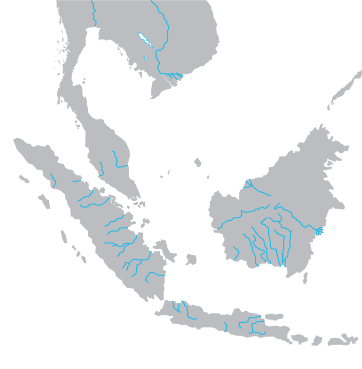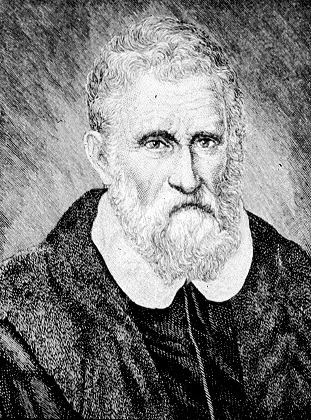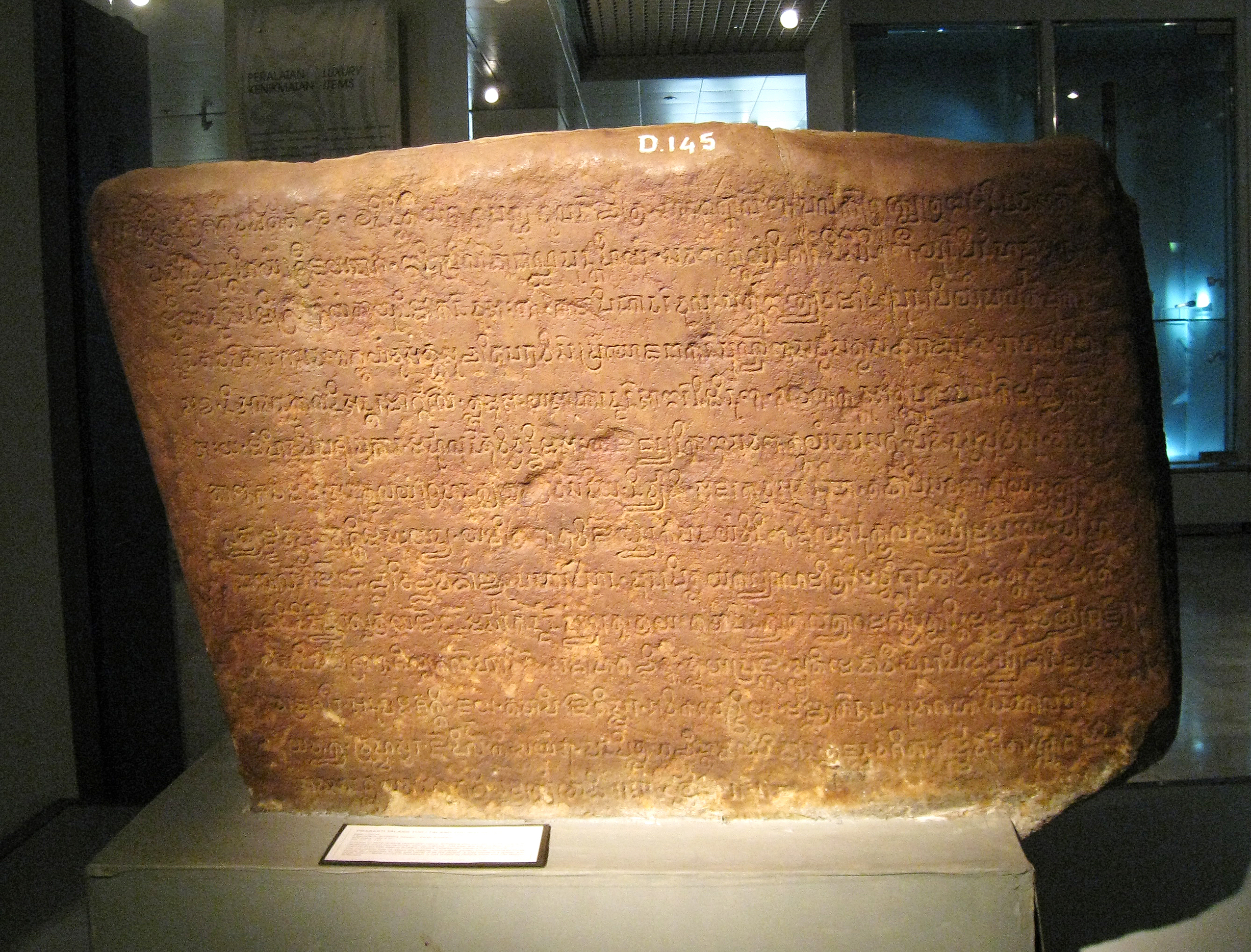|
Fansur
Barus is a town and ''kecamatan'' (district) in Central Tapanuli Regency, North Sumatra Province, Sumatra, Indonesia. Historically, Barus was well known as a port town or kingdom on the western coast of Sumatra where it was a regional trade center from around the 7th or earlier until the 17th century. It was also known by other names, namely Fansur and possibly Barusai. The name Fansur or Pansur means "spring of water" in the local Batak language. Barus was well known for its produce camphor. In the 16th century, Barus came under attack from the rising power of Aceh, and became absorbed into the Aceh Sultanate. The earliest known Malay poet Hamzah Fansuri may be from Barus as indicated by his name. Historical records Barus was a significant settlement on the west coast of Sumatra widely recorded in many historical documents. Other related sites in Sumatra includes Lamuri in Aceh and Pannai in North Sumatra. The second century Greek geographer Claudius Ptolemy in his work ''Geo ... [...More Info...] [...Related Items...] OR: [Wikipedia] [Google] [Baidu] |
Hamzah Fansuri
Hamzah Fansuri ( Jawi: حمزه فنسوري ; also spelled Hamzah Pansuri, d. 1590 ?) was a 16th-century Sumatran Sufi writer, and the first writer known to write mystical panentheistic ideas in the Malay language. He wrote poetry as well as prose. Life Information on Hamzah's life comes largely from the ''takhallus bait'' (pen-name stanza) that ends his poetry (''syair''), as well as from the work of his disciple Hasan Fansuri and commentaries on Hamzah's poems. However, many of his biographical details are uncertain. His name indicates that he may be from Barus (also known as Fansur to the Arabs), or have spent a large part of his life there. A link to the Siamese Ayutthaya (''Shahr-i-Naw'') has also been proposed, although it may be that he travelled to Ayutthaya rather than that being his birthplace.G.W.J. Drewes and L.F. Brakel (eds. and tr.). ''The poems of Hamzah Fansuri''. Dordrecht and Cinnaminson: Foris Publications, 1986. , pp-3–18 He was inducted into a Sufi order ... [...More Info...] [...Related Items...] OR: [Wikipedia] [Google] [Baidu] |
Aceh Sultanate
The Sultanate of Aceh, officially the Kingdom of Aceh Darussalam ( ace, Keurajeuën Acèh Darussalam; Jawoë: كاورجاون اچيه دارالسلام), was a sultanate centered in the modern-day Indonesian province of Aceh. It was a major regional power in the 16th and 17th centuries, before experiencing a long period of decline. Its capital was Kutaraja, the present-day Banda Aceh. At its peak it was a formidable enemy of the Sultanate of Johor and Portuguese-controlled Malacca, both on the Malayan Peninsula, as all three attempted to control the trade through the Strait of Malacca and the regional exports of pepper and tin with fluctuating success. In addition to its considerable military strength, the court of Aceh became a noted center of Islamic scholarship and trade. History Foundation and rise The sultanate was founded by Ali Mughayat Syah, who began campaigns to extend his control over northern Sumatra in 1520. His conquests included Deli, Pedir, and Pas ... [...More Info...] [...Related Items...] OR: [Wikipedia] [Google] [Baidu] |
Lamuri
Lamuri or Lambri was a kingdom in northern Sumatra, Indonesia from the Srivijaya period until the early 16th century. The area was inhabited by Hindu population around the seventh century. There is also evidence of Buddhism. The region is also thought to be one of the earliest places of arrival of Islam in the Indonesian archipelago, and in its later period its rulers were Muslims. Lambri is generally considered to be located in the Aceh province near Banda Aceh. Its location has been suggested to be in today's Lambaro to the west of Bandar Aceh where submerged ruins of buildings and tombstones have been found, although some now associate Lambri with Lam Reh to the east of Aceh where there are ancient tombstones. Accounts of Lambri have been given in various sources from the 9th century onwards, and it is thought to have become absorbed into the Aceh Sultanate by the early 16th century. Names The Kingdom of Lamuri or Lambri was known to the Arabs from the 9th century onward, ... [...More Info...] [...Related Items...] OR: [Wikipedia] [Google] [Baidu] |
Ahmad Ibn Rustah
Ahmad ibn Rustah Isfahani ( fa, احمد ابن رسته اصفهانی ''Aḥmad ibn Rusta Iṣfahānī''), more commonly known as Ibn Rustah (, also spelled ''Ibn Rusta'' and ''Ibn Ruste''), was a tenth-century Persian explorer and geographer born in Rosta district, Isfahan, Persia. He wrote a geographical compendium known as ''Kitāb al-A‘lāq al-Nafīsa'' ( ar, كتاب الأعلاق النفيسة, ''Book of Precious Records''). The information on his home town of Isfahan is especially extensive and valuable. Ibn Rustah states that, while for other lands he had to depend on second-hand reports, often acquired with great difficulty and with no means of checking their veracity, for Isfahan he could use his own experience and observations or statements from others known to be reliable. Thus we have a description of the twenty districts (''rostaqs'') of Isfahan containing details not found in other geographers' works. Concerning the town itself, we learn that it was perfectly ... [...More Info...] [...Related Items...] OR: [Wikipedia] [Google] [Baidu] |
Sulaiman Al-Tajir
Sulaiman is an English transliteration of the Arabic name that means "peaceful" and corresponds to the Jewish name Hebrew: שְׁלֹמֹה, Shlomoh) and the English Solomon (/ˈsɒləmən/) . Solomon was the scriptural figure who was king of what was then the United Kingdom of Israel (c. 970–931 BCE) and is revered as a major prophet by Muslims. Sulaiman may also refer to: People with the given name Sulaiman * Ebrahim Sulaiman Sait (1922–2005), Indian politician * Sulaiman (Brunei) (15th century), fourth sultan of Brunei * Sulaiman Abu Ghaith (born circa 1965), Al-Qaida's official spokesman * Sulaiman Abdul Aziz Al Rajhi (born 1920), Saudi Arabian businessman * Sulaiman Abdul Rahman Taib (21st century), Malaysian politician * Sulaiman al-Barouni (1872–1940), ruler of Tripolitania * Sulaiman Al-Fahim (21st century), United Arab Emirati businessman * Sulaiman Areeb (died 1972), Urdu poet * Sulaiman Awath Sulaiman Bin Ageel Al Nahdi (21st century), Yemeni extrajudicial ... [...More Info...] [...Related Items...] OR: [Wikipedia] [Google] [Baidu] |
Al-Masudi
Al-Mas'udi ( ar, أَبُو ٱلْحَسَن عَلِيّ ٱبْن ٱلْحُسَيْن ٱبْن عَلِيّ ٱلْمَسْعُودِيّ, '; –956) was an Arab historian, geographer and traveler. He is sometimes referred to as the "Herodotus of the Arabs". A polymath and prolific author of over twenty works on theology, history (Islamic and universal), geography, natural science and philosophy, his celebrated magnum opus '' Murūj al-Dhahab wa-Ma'ādin al-Jawhar'' ( ar, مُرُوج ٱلذَّهَب وَمَعَادِن ٱلْجَوْهَر, link=no), combines universal history with scientific geography, social commentary and biography, and is published in English in a multi-volume series as '' The Meadows of Gold and Mines of Gems''. Birth, travels and literary output Apart from what Al-Mas'udi writes of himself little is known. Born in Baghdad, he was descended from Abdullah Ibn Mas'ud, a companion of Muhammad. He mentions many scholar associates met on his travels thr ... [...More Info...] [...Related Items...] OR: [Wikipedia] [Google] [Baidu] |
Zhao Rugua
Zhao Rukuo (; 1170–1231), also read as Zhao Rugua, or misread as Zhao Rushi, was a Chinese historian and politician during the Song dynasty. He wrote a two-volume book titled ''Zhu Fan Zhi''. The book deals with the world known to the Chinese in the twelfth and thirteenth centuries; the first volume is a list of foreign places with descriptions of each place and the customs of its local people. The second volume is a catalog of trade goods. Biography Zhao was a member of the Song Dynasty imperial clan, an eighth-generation descendant of Emperor Taizong in the lineage through the younger brother of Emperor Zhenzong. He was born in Tiantai County in Taizhou, Zhejiang in 1170. He began his career as a bureaucrat in 1190, and rose through the rank. In 1224, he was appointed the supervisor of maritime trade (市舶司, ) in Quanzhou, Fujian province. He also held the posts of prefect for Quanzhou as well the southern administrator. He died in 1231 and was buried in Linhai County i ... [...More Info...] [...Related Items...] OR: [Wikipedia] [Google] [Baidu] |
Zhu Fan Zhi
''Zhu Fan Zhi'' (), variously translated as '' A Description of Barbarian Nations'', ''Records of Foreign People'', or other similar titles, is a 13th-century Song Dynasty work by Zhao Rukuo. The work is a collection of descriptions of countries and various products from outside China, and it is considered an important source of information on the people, customs and in particular the traded commodities of many countries in South East Asia and around the Indian Ocean during the Song Dynasty. Background The author Zhao Rukuo (1170-1231) was a member of the Song Dynasty imperial clan. He was posted to Fujian as a supervisor of the maritime trade in Quanzhou. While working in Fujian, he had the opportunity to meet merchants from various countries from whom he gathered information on various countries around the world. He also took note of the various products traded, studied the maps of the period, and together with the information he had learnt he wrote the book which was finishe ... [...More Info...] [...Related Items...] OR: [Wikipedia] [Google] [Baidu] |
Srivijaya Empire
Srivijaya ( id, Sriwijaya) was a Buddhist thalassocratic empire based on the island of Sumatra (in modern-day Indonesia), which influenced much of Southeast Asia. Srivijaya was an important centre for the expansion of Buddhism from the 7th to the 12th century AD. Srivijaya was the first polity to dominate much of western Maritime Southeast Asia. Due to its location, the Srivijaya developed complex technology utilizing maritime resources. In addition, its economy became progressively reliant on the booming trade in the region, thus transforming it into a prestige goods-based economy. The earliest reference to it dates from the 7th century. A Tang dynasty Chinese monk, Yijing, wrote that he visited Srivijaya in year 671 for six months. The earliest known inscription in which the name Srivijaya appears also dates from the 7th century in the Kedukan Bukit inscription found near Palembang, Sumatra, dated 16 June 682. Between the late 7th and early 11th century, Srivijaya rose ... [...More Info...] [...Related Items...] OR: [Wikipedia] [Google] [Baidu] |
Mulasarvastivada
The Mūlasarvāstivāda (Sanskrit: मूलसर्वास्तिवाद; ) was one of the early Buddhist schools of India. The origins of the Mūlasarvāstivāda and their relationship to the Sarvāstivāda sect still remain largely unknown, although various theories exist. The continuity of the Mūlasarvāstivāda monastic order remains in Tibetan Buddhism, although until recently, only Mūlasarvāstivādin bhikṣus (monks) existed: the bhikṣuṇī order had never been introduced. History In India The relationship of the Mūlasarvāstivāda to the Sarvāstivāda school is a matter of dispute; modern scholars lean towards classifying them as independent. Yijing claimed that they derived their name from being an offshoot of Sarvāstivāda, but Buton Rinchen Drub stated that the name was a homage to Sarvāstivāda as the "root" (''mūla'') of all Buddhist schools. A number of theories have been posited by academics as to how the two are related, which Bhikkhu Sujato ... [...More Info...] [...Related Items...] OR: [Wikipedia] [Google] [Baidu] |
Marco Polo
Marco Polo (, , ; 8 January 1324) was a Venetian merchant, explorer and writer who travelled through Asia along the Silk Road between 1271 and 1295. His travels are recorded in ''The Travels of Marco Polo'' (also known as ''Book of the Marvels of the World '' and ''Il Milione'', ), a book that described to Europeans the then mysterious culture and inner workings of the Eastern world, including the wealth and great size of the Mongol Empire and China in the Yuan Dynasty, giving their first comprehensive look into China, Persia, India, Japan and other Asian cities and countries. Born in Venice, Marco learned the mercantile trade from his father and his uncle, Niccolò and Maffeo, who travelled through Asia and met Kublai Khan. In 1269, they returned to Venice to meet Marco for the first time. The three of them embarked on an epic journey to Asia, exploring many places along the Silk Road until they reached Cathay (China). They were received by the royal court of Kublai Khan, ... [...More Info...] [...Related Items...] OR: [Wikipedia] [Google] [Baidu] |
Srivijaya
Srivijaya ( id, Sriwijaya) was a Buddhist thalassocratic empire based on the island of Sumatra (in modern-day Indonesia), which influenced much of Southeast Asia. Srivijaya was an important centre for the expansion of Buddhism from the 7th to the 12th century AD. Srivijaya was the first polity to dominate much of western Maritime Southeast Asia. Due to its location, the Srivijaya developed complex technology utilizing maritime resources. In addition, its economy became progressively reliant on the booming trade in the region, thus transforming it into a prestige goods-based economy. The earliest reference to it dates from the 7th century. A Tang dynasty Chinese monk, Yijing, wrote that he visited Srivijaya in year 671 for six months. The earliest known inscription in which the name Srivijaya appears also dates from the 7th century in the Kedukan Bukit inscription found near Palembang, Sumatra, dated 16 June 682. Between the late 7th and early 11th century, Srivijaya rose t ... [...More Info...] [...Related Items...] OR: [Wikipedia] [Google] [Baidu] |

.jpg)



